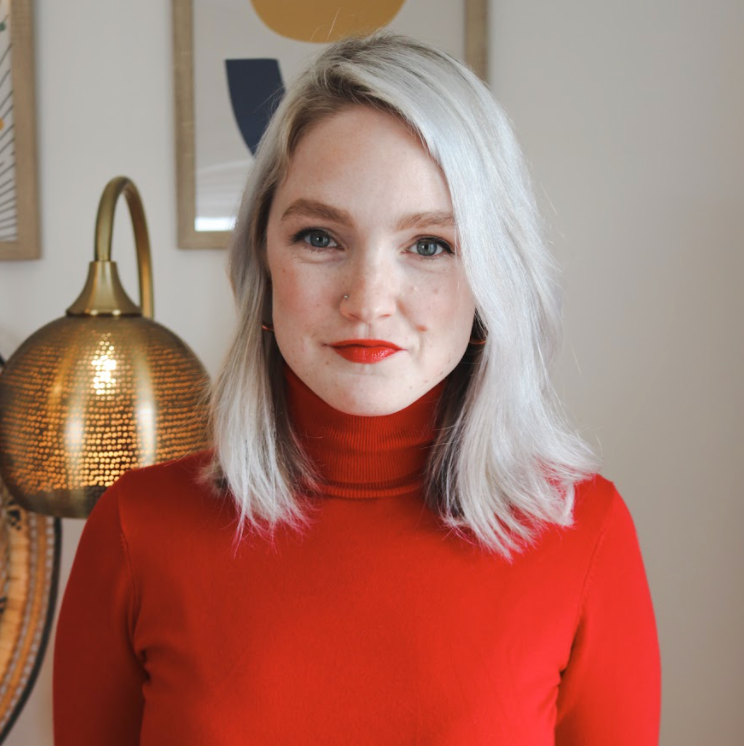6 years ago this month, I received an email that would change my life.
It was an offer letter for a part time, $15/hour contractor position with no health insurance or benefits. I would be responsible for finding guests for podcasts as well as pitching our guests to other shows.
The agency was bringing me on specifically to focus on real estate clients. At the time, I knew absolutely nothing about real estate; I had never owned a home or any other type of property. I also knew nothing about podcasts. The only podcast I had ever listened to was Serial.
Despite having zero knowledge about podcasts, real estate or business in general, I worked my way up to becoming 50% owner of that company within 2 years, and today I am the CEO.
It’s a wild story (even I can’t believe it most days), and I often get asked what I did to advance so quickly. In order to answer that question as concisely and accurately as possible, here is a list of the 7 key things I did to go from part time contractor to CEO:
1. Do What the Business Needs, Whether You Feel Like it or Not
During my interview, my future business partner Jess emphasized the expectation that I would be getting on the phone cold calling potential real estate guests. The other bookers on the team didn’t want to use the phone, hence them bringing me on specifically as “the caller.”
Like most millennials, I talk on the phone as little as humanly possible. In my personal life, if you call me, I will text you back to ask what you want. However, I understood that talking on the phone was a deal breaker and was what the company needed. I put my personal aversion to phone calls aside, and dove in. I cold called potential podcast guests whenever I could find a number, and even started calling all my clients once a week to check in and make sure they were liking all their interviews.
By happily taking on a task important to the business even though it wasn’t necessarily something I enjoyed, I showed my boss that I was a team player ready to step up and help wherever I was needed. This quickly led to more opportunities.
2. Show Up With the Mindset of a Leader Regardless of Your Official Title
I didn’t set out to advance in the company. My vision was to be a contractor for Interview Connections on the side while I built my health coaching business, and eventually be able to run my own business full time. Still, I offered to take on more responsibility whenever I could.
Soon, I was managing the team and helping out with other things wherever needed. My role evolved into a hybrid of a general manager, administrative assistant and operations manager, while also being in a producer role pitching and booking my own clients. I took on more responsibility without asking for compensation up front.
Only after I had demonstrated my value for many months in multiple roles did I put together a raise request. I scheduled a call with Jess, outlined the ways my work had directly impacted client retention, renewal rates and the overall success of the company, and asked for the hourly rate I wanted. Because I had clearly demonstrated my value with my actions and in my summary at the raise request, she said yes. A few months later, I would be offered a new role.
3. Stick With It, Even When It’s Hard
In December 2016, Jess asked me to meet her in person for lunch. She presented me with a comically large name plate and asked me to be the first employee of Interview Connections. I said yes, and then went home and cried my eyes out to my best friend. I wanted to be a business owner, not an employee, and this felt like a huge step backwards.
But I loved the excitement and creativity of working in a young business, and I knew that staying on as a contractor wouldn’t be an option; I either had to accept a w2 role or move on. Even though it wasn’t the role I wanted, I stayed the course and was the absolute best employee I could be. When we transitioned from a team of contractors to full time employees, I was tasked with leading the changeover and hiring, training and managing our new team. I had no idea what I was doing and it was a steep and painful learning curve. It brought me to tears on multiple occasions, but I didn’t give up.
4. Personal Growth is the Path to Professional Growth
I started working for Interview Connections a year after losing my dad to suicide. That loss caused a major breakdown in my life, both internally and externally. A silver lining of this loss was that it forced me to face all my unprocessed bullshit. With all my trauma bubbling to the surface, I could no longer avoid or ignore my issues.
In an effort to rebuild myself and my life, I set about finding a great therapist and working through my issues like it was my job. I’ve since come to realize that processing your shit is your job, and is the single most important way to grow as a leader. If I had to narrow this list to only one thing, it would be this one.
You probably already have the skills and intelligence you need to do an amazing job in a wide range of roles; it is a mental and emotional game to turn that potential into realized success.
5. People Give You More Opportunities When You Are Easy to Work With and Fun to Be Around
I love to laugh and joke around, and I brought that to my work as a contractor and a w2 employee. Being able to laugh makes otherwise stressful things like growing and scaling a business a lot more fun. Likewise, maintaining a positive attitude even in the face of challenges goes a very long way.
I put in a lot of effort not to vent or be negative even when things felt challenging. I would absolutely speak up and raise concerns, but I always tried to do it from a solution oriented place, not a complaining one. If I felt too upset or overwhelmed to communicate productively, I would take a walk and calm down before saying anything I might regret.
Nothing burns people out more than being around a coworker who is negative or rude. As a business owner, I know that a negative attitude is the worst possible trait a team member can have, regardless of how smart or talented they might be. It is toxic for the entire team and drains joy and energy from teams and leaders alike.
This goes hand in hand with processing your trauma and focusing on personal growth. No one wants to be a negative, off putting person. Most people who act that way are suffering themselves, and likely unaware of the impact it has on others. Whether it’s working with a therapist or a coach, meditating, reading personal growth books or all of the above, taking consistent responsibility for your mental state and attitude will make you a dream team member (and leader).
6. You Must Become More Flexible and Open to Change
Most workplaces are dynamic and changing quickly. Working for a fast growing company is exciting and there is huge possibility for quick career growth. The flipside of that is you need a very high tolerance for change.
I do not identify as an especially laid back or flexible person, but I understood it was a necessary trait to succeed in a startup, and focused a lot of my energy on developing the skill of flexibility. It is a muscle you build, and one you will need if you want to advance quickly.
7. When You Do All This, You Attract the Circumstances You Need to Thrive
I would be remiss not to list this very important piece of the puzzle. Whether you want to call it fate, manifestation, or plain old dumb luck, I was in the right place at the right time with the right skills.
We all have these moments of fate or luck where we are in the right place at the right time. With personal growth and development, we can more effectively create opportunities and recognize them when they cross our path. By processing our trauma, showing up as leaders, and intentionally cultivating flexibility and a positive attitude, we can effectively leverage that luck into lasting success.


